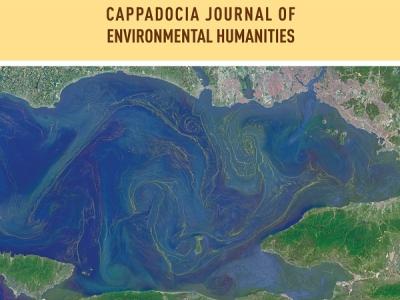
A new journal focusing on the environmental humanities launches today, produced by the Cappadocia University Environmental Humanities Center in Turkey. The first issue, which is titled “Environmental Humanists Respond to the World Scientists’ Warning to Humanity”, features papers from IASH Director Professor Steve Yearley and IASH Advisory Board member Professor Rosi Braidotti. The editors, Steven Hartman and Serpil Oppermann, said, "The idea behind our first special issue focusing on responses to the Scientists' Warnings to Humanity was to inaugurate not just the journal but the kind of key bridging dialogues across scientific and scholarly communities that we feel are dearly needed now, drawing on the deep reservoir of human knowledge and capacities available to provide as united a front as possible in our efforts to meet the considerable sustainability challenges facing our world."
Professor Yearley's paper, Political, Ethical, and Societal Aspects of Issuing Warnings to Humanity, argues that attempts to “speak truth to humanity”—despite the undoubted quality of the data and analyses—face three sorts of problem. There is firstly the difficulty that humanity is not a unified entity in the way that is often assumed and that, in practice, citizens may not be in a position to act in the way that is presupposed by those who issues the warnings. Secondly, though the declaration of a climate emergency may appear to be a desirable corollary of speaking truth to humanity, there are good reasons from political science to think that such declarations will be made for messier and complex reasons. Finally, even the more technical aspects of the warning documents may contain normative or social scientific components; they are not exclusively technical. Together these points argue for the engagement of humanities and social sciences scholars in future attempts to offer compressive, integrated warnings to humankind.
Professor Braidotti’s contribution, titled “We” May Be in This Together, but We Are Not All Human and We Are Not One and the Same, argues that there has never been a more urgent time to engage with the environmental eumanities and the other posthumanities. This engagement is creative as well as critical, and touches upon some fundamental issues within what she has called the posthuman convergence, meaning the intersection of two concurrent but contradictory phenomena: the unprecedented technological developments also known as the Fourth Industrial Revolution and the acceleration of the climate change emergency. This complex intersection of events triggers multiple fractures, ethical dilemmas, affective perturbations, political concerns, and critical lines of inquiry. Professor Braidotti has summarized them as the convergent critiques of Humanism on the one hand and the rejection of anthropocentrism on the other. This is neither a simple nor a harmonious intersection of critical lines, but rather an encounter fraught with painful contradictions and challenging problems.
The entire first issue can be read here (Open Access).
